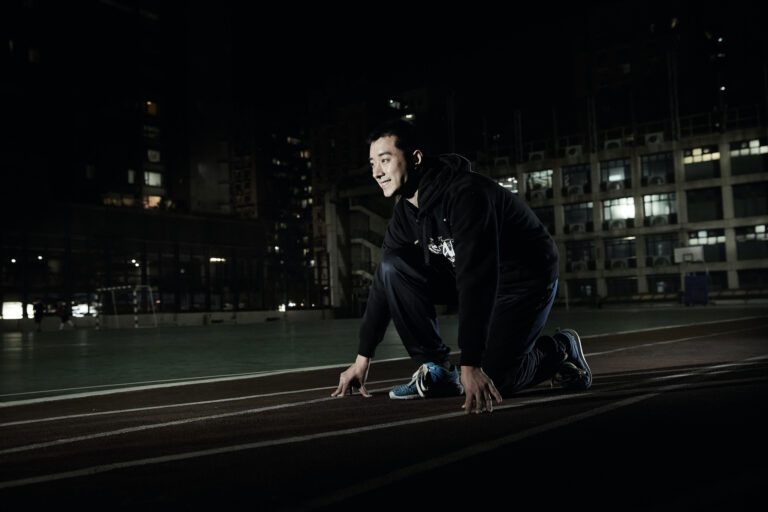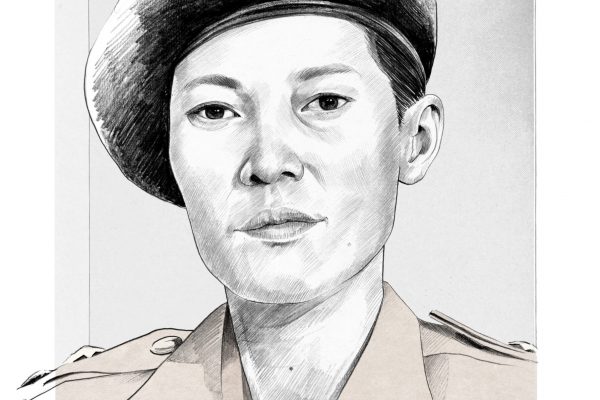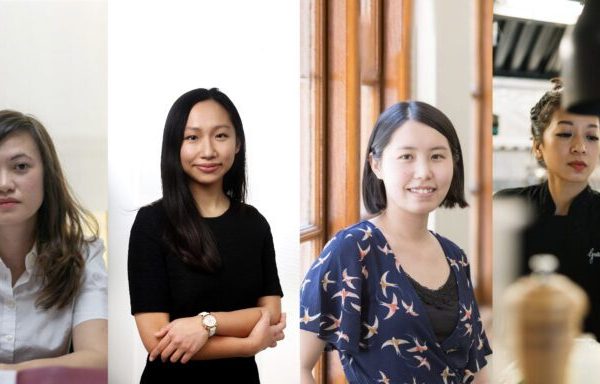Training Day: Inside the Macau Special Olympics
Wong Kin Hong, a track and field player who has been diagnosed with a moderate intellectual disability, rushes to the Lin Fong Sports Centre in northern Macao, next to the former Canidrome greyhound racing stadium. As he reaches the entrance, a guard waves him inside with a familiar smile. After quickly changing into his training gear, Wong meets his coach and fellow athletes on the field. Warming up surrounded by his teammates, the amiable 24-year-old seems to be in his element.
This is a typical scene at the sports centre, where young men and women train for the Macau Special Olympics (MSO) every day of the week except on Sundays. Established in 1983 as the local branch of the Special Olympics International, MSO supports people with intellectual disabilities – including autism spectrum disorder and Down’s syndrome – and fights for inclusivity in the world of sports. It remains one of the few non-government organisations in Macao, where there are 1,749 registered people who have an intellectual disability, to provide vocational rehabilitation services for this community.
“MSO method [aims] to improve individuals’ confidence by really helping them improve their athletic abilities,” says Wu Peng Koi, 59, the head coach of MSO track and field. “This confidence will also help them in other parts of their lives, like commuting around the city and living independently.”
Training with the Macau Special Olympics
When it was founded, MSO initially helped teach sports-related activities to children in special education schools, counting more than 20 athletes. Today, the not-for-profit organisation has around 800 participants – all of whom are Chinese locals. In general, MSO tends to be more popular among males, who account for 75 per cent of participants.
MSO offers 14 sports departments – ranging from swimming and table tennis to badminton, bowling, football, golf, basketball, ice skating, and dragon boat racing – and numerous events, competitions and gatherings throughout the year.
Anyone with intellectual disabilities is welcome to join MSO as long as they present a disability certificate from the government or an internationally recognised expert. “They can be as young as seven years old or in their early adult years,” says Wu, adding that they typically create sub-groups within each sports department based on ability. “So long as they have intellectual disabilities, he or she is welcome.”
While it was difficult for the charity to hold events in 2020, they managed to host the Special Olympics Basketball Tournament in September and the Special Olympics Track and Field in October, while pandemic restrictions eased. “For 2021, our athletes are busy preparing for the 11th National Games for Persons with Disabilities, as well as the 8th National Special Olympics Games, that will be held in mainland China,” says Alice Mok, another social worker at the charity. “They also plan to join the 2022 Special Olympics World Winter Games and the 2023 Virtus Global Games [formerly the INAS Global Games].”
Wu says instilling confidence is one of the central missions at MSO. As such, he encourages his players to aim for their personal best – not necessarily a gold medal – at every competition. Rather than focusing on winning, coach Wu says it’s essential to celebrate incremental improvements and personal achievements.
Sports are at the head of MSO’s mission, but it is only half the equation. The charity believes that people with intellectual disabilities should be given more chances to integrate and contribute to society through education, work and social opportunities.
Aside from athletics training, since 2000, the charity has offered vocational training services and assisted employment services with financial support from the Social Welfare Bureau (IAS). Recently, MSO has also started developing special education support services, physical therapy, occupational therapy and language therapy.
“What we’ve done is still not enough, and we still need to do more to make society more inclusive for people with disabilities,” says MSO Director Hetzer Siu. “If we could all learn to accept people with disabilities, we will live in harmony despite our differences.”
The road to self-confidence
Coach Wu joined MSO in 1999 and has been volunteering since. Wu has known Wong since the young track and field player stepped onto the field for his first day of training, just 13 years old at the time.
Fast forward 11 years later, and Wong is now one of the team’s star players. Endearingly called “Ah-kin”, Wong has been diagnosed with a moderate intellectual disability, which can make communication and problem-solving challenging at times.
“Since [I met Wong years ago], his skills and confidence have grown, and he is now more independent,” says Wu. “For instance, he is now able to ride the public bus to and from training on his own.”
Wong also works full-time – from 9 am until around 4 pm every weekday – on top of team practice from 5:50 to 7 pm. Kason Ting Ka Hei, Wong’s assigned social worker, points out that it can be challenging for Wong to balance work and sports. “Sometimes when he is under pressure from his work, sports are a good way for [Wong] to relieve the stress,” says Ting. “But this period is especially challenging because he is transitioning from student life to adulthood, which means many new changes that he needs to get used to. It’s just a part of him becoming more independent.”
The young man has been under substantial pressure in recent years. His parents have grown ill, and his younger sister is still in school, so Wong must provide for the family. As Ting shares, Wong currently receives MOP 9,000 per year – an average of MOP 750 per month – as government allowance for his disability.
“He used to work at a hotel before Covid-19 but is currently on leave without pay due to the pandemic,” says Ting. As part of its vocational training programme, MSO is now training Wong to be an office cleaner at MSO’s Complexo de Serviços Ngai Chun, where he earns a monthly stipend of roughly MOP 1,000. Once he is ready, MSO will assign him to a team that provides cleaning services to government organisations and universities.
The idea, says Wu, is to help individuals with intellectual disabilities communicate, learn new skills, build confidence and contribute to the community. “This gives them recognition and also raises respect from society,” says Wu.
Wong’s dedication has paid off. His vocational training is going well, and he has also competed in several competitions over the years, such as the annual Macao International Marathon and the quadrennial International Sports Federation for Persons with Intellectual Disability Global Games in Australia.
More support in Macao
According to MSO Director Hetzer Siu, the charity is continuously looking for new revenue streams, sponsorships and ways to expand their services. Currently, the organisation relies on government departments, social enterprises and private donations for revenue. In 2019, the charity had an operating budget of roughly MOP 30 million.
About 42 per cent came from the Education and Youth Affairs Bureau; 25 per cent from the Social Welfare Bureau; 6 per cent from the Sports Bureau; 12 per cent from social enterprises; and 15 per cent from private donations.
But Wu says that isn’t enough to train a world-class Special Olympics team. They would need more government support, both in terms of finances and training facilities, to enable the MSO team to be more competitive internationally.
Venue restrictions have long been a pain point for MSO. Since Macao’s sports training facilities have limited capacity, the government prioritises registered sports associations, which the charity is not. MSO also says that participants need more flexibility from schools and workplaces. “Right now, we train during public hours, and we share the space with other teams,” says Wu. “And when there are sports teams and associations that have booked the field, we have to leave.”
For example, Hong Kong has a more complete ecosystem when it comes to supporting Special Olympics athletes, providing more financial and social support, as well as excellent venues and equipment. Those who become elite athletes can apply to join the Hong Kong Sports Institute (HKSI), where they receive varying levels of support to hone their talent and skills.
In Macao by contrast, even the top MSO athletes must train after the workday, which can be tiring and stressful. “Ideally, with government funding, our athletes could concentrate on training and not worry too much about their livelihoods,” says Wu. “Or if they’re students, the schools could give them time to train. However, this isn’t the case.”
Even with some obstacles, MSO has performed relatively well in competitions. In the 2018 Asian Para Games in Indonesia, MSO swimmer Wong Chi Ian, competed in the 50-metre freestyle competition, finishing fifth. Meanwhile, fellow swimmer Chan Yu Chia raced in the 200-metre freestyle and came in seventh.
In the 2019 Australian INAS, Chao Kam Fong took part in the shot put finals, coming in seventh. That same year, MSO took first place 14 times across various sports categories during the Special Olympics World Games Abu Dhabi 2019.
“Wong [Kin Hong] participated in the men’s 400-metre dash and earned a personal record at the Asian Para Games,” adds Ting with pride.
For athletes like Wong, MSO has been nothing short of life-changing. He has made new friends, grown stronger, gained confidence and is on his way to securing a new job thanks to MSO’s vocational training programme. Playing sports and training also brings him great joy and a sense of fulfilment, adds Ting.
Quietly joining a friend on the track and field team, Wong prepares for the nightly cooldown. With a football game about to begin in just a few minutes, the athletes start to pack up their things and head towards the exit, the stadium lights glowing overhead. We ask how sports makes him feel, and Wong smiles, nods his head and looks down bashfully. Ting translates: “Yes, it makes him very happy.”




